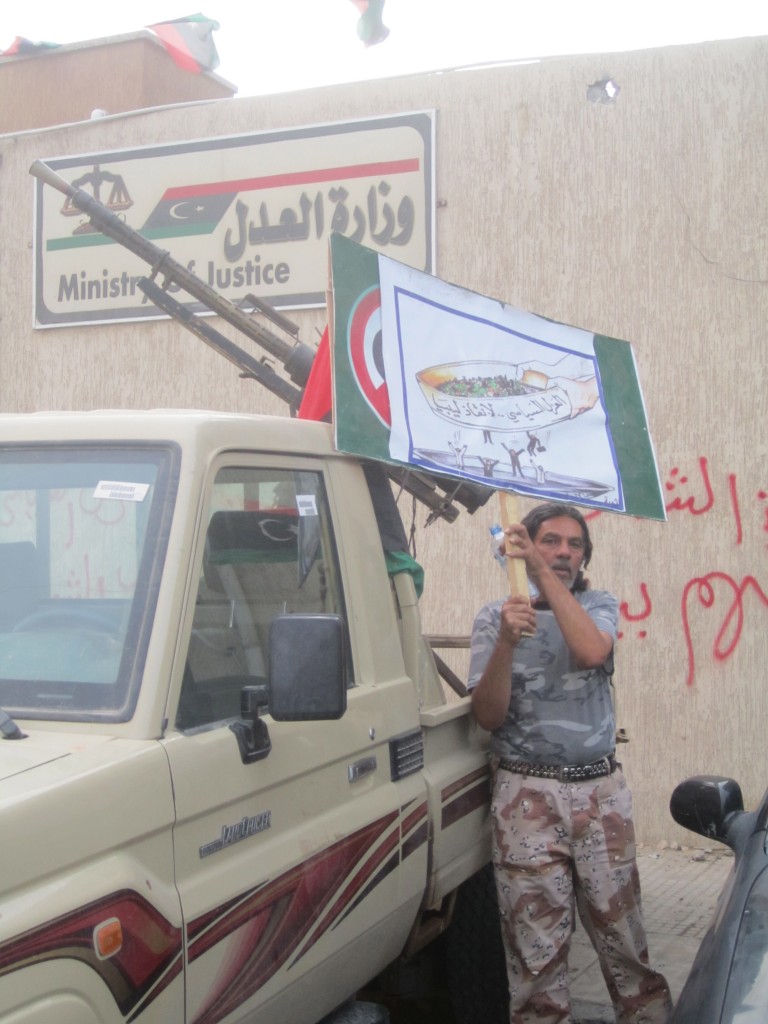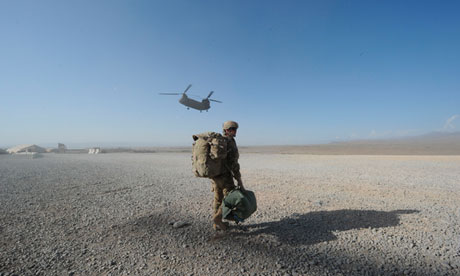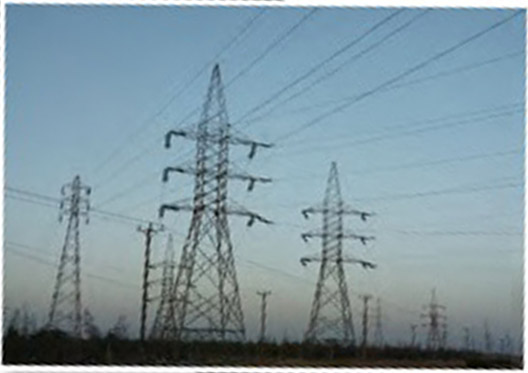A look at three unmitigated disasters....
Libya....
http://www.libyaherald.com/2013/05/01/we-wont-use-these-weapons-militiamen-at-justice-ministry-siege/

http://www.libyaherald.com/2013/05/01/jebel-nafusa-fighting-smashes-power-lines-tripoli-supplies-cut/
http://www.libyaherald.com/2013/04/30/massive-sebha-jailbreak/
http://news.antiwar.com/2013/04/30/another-ministry-seized-as-libyan-militias-exert-influence/
 It wasn’t a move from the one to the other, either, the group around the Foreign Ministry is still there, and now they have two ministries surrounded, reflecting the growing influence thatunaffiliated militias are having in the capital.
It wasn’t a move from the one to the other, either, the group around the Foreign Ministry is still there, and now they have two ministries surrounded, reflecting the growing influence thatunaffiliated militias are having in the capital.
and......

Libya....
http://www.libyaherald.com/2013/05/01/we-wont-use-these-weapons-militiamen-at-justice-ministry-siege/
“We won’t use these weapons”: militiamen at Justice Ministry siege
By Tom Westcott.

Militiamen demanding that the proposed Political Isolation Law be passed say they will not use their weapons (Photo: Tom Westcott, Libya Herald)
Tripoli, 1 May 2013:
Militiamen who are besieging the Ministry of Justice demanding that the Political Isolation Law be passed say that they will not fire the guns they used to shut the ministry.
“We are not going to use these weapons,” one protestor told the Libya Heraldtoday. Gesturing towards seven ‘technicals’ (vehicles mounted with anti-aircraft guns) and one vehicle armed with a multiple-launch rocket system (MRLS) parked opposite the Ministry, he said: “This is the only way we could close the ministries. This is the only way we could make people listen to us.”
He said that supporters of the proposed Political Isolation Law, which would prevent Qaddafi-era officials from holding high-level posts, had previously been protesting peacefully for eight months in a tent in Martyrs’ Square. Despite some 90 people joining the protest every night, he said, it had had no impact on the GNC.
“We stood without guns for eight months but nothing changed and no-one listened to us,” he said.“So we came here.”
Two more technicals were parked outside the entrance to the ministry and several of the militia carried guns.
Some protestors were anxious for guns and armed vehicles not to be included in photographs. “This is not what it’s about,” one said, “it is just about the law. Everybody from the old system must go.” He added that many people, not just freedom fighters, wanted the Political Isolation Law to be passed.
“You can see that we are not using guns here,” another said. “Everyone can drive and walk past. We just want the new law.” He added that Tripoli was safe.
“These are freedom fighters, these are good people,” he said. “If the law is passed on Sunday, we will just go home.”
http://www.libyaherald.com/2013/05/01/jebel-nafusa-fighting-smashes-power-lines-tripoli-supplies-cut/
Jebel Nafusa fighting smashes power lines – Tripoli supplies cut
Tripoli, 1 May 2013:
There have been power cuts today in Tripoli after clashes in the Jebel Nafusa destroyed transmission lines taking power to the capital.
“In the Jebel Nafusa region, the targeting of transmission lines has resulted in the complete cut-off of 600 megawatts from the Ruwais Power station, leading to power losses in several areas,” Electricity Minister Ali Mihirig El-Ferjani said today on his official Facebook page.
“We do not know the extent of the losses, or how long it will take to repair the damage,” El-Ferjani said.
The Ministry is staggering the supply of electricity around Tripoli every three hours to try and evenly distribute the remaining power. However, not all areas of Tripoli are affected.
http://www.libyaherald.com/2013/04/30/massive-sebha-jailbreak/
Massive Sebha jailbreak
By Farah Waleed.
Tripoli, 30 April 2103:
Some 170 prisoners escaped from Sebha prison today, Sebha Local Council spokesman Abobker Hanza told the Libya Herald. He said the breakout occurred after a dispute among the prisoners led to chaos in the jail.
Some of the escapees had gone back to the prison voluntarily, others were caught by security forces but a large number were still at large, he said.
It is the fourth jail break from the prison in the last two months.
The council had met with the Military Governor of the South, Ramadan Barrasi, and other security leaders to investigate the escape.
http://news.antiwar.com/2013/04/30/another-ministry-seized-as-libyan-militias-exert-influence/
Another Ministry Seized as Libyan Militias Exert Influence
Fighters Capture Justice Ministry, Force Employees Out
by Jason Ditz, April 30, 2013
Just days after launching a weekend siege on the Libyan Foreign Ministry, Tripoli’s militias are at it again, moving against the Justice Ministry today, surrounding it with armed men and forcing the employees out.
 It wasn’t a move from the one to the other, either, the group around the Foreign Ministry is still there, and now they have two ministries surrounded, reflecting the growing influence thatunaffiliated militias are having in the capital.
It wasn’t a move from the one to the other, either, the group around the Foreign Ministry is still there, and now they have two ministries surrounded, reflecting the growing influence thatunaffiliated militias are having in the capital.
In addition to those ministries, the factions have briefly raided the Interior Ministry, as well as a state-run TV network, and are pressing demands for a law that would ban Gadhafi-era officials from retaining office.
The militias reflect growing unrest in Libya with the sheer number of Gadhafi-loyal bureaucrats that have stayed in power since the NATO-imposed regime change, and the Foreign Ministry appears to have been a particular target since a large number of senior officials are the same people they were pre-revolution.
The move against the Justice Ministry seems to also reflect recent demands by Minister Marghan that the militias hand over all detainees to the ministry by the end of May. Despite the Libyan War being over for quite some time, many of the rebel militias are still holding “loyalist” suspects from the old regime long after the fact, without access to even the iffy courts of the Libyan government.
Afghanistan - why stay there ? It's a financial swamp where we fund corrupt politicians and the Taliban and we seem to have no real plan moving forward......
http://antiwar.com/blog/2013/04/30/afghanistan-an-endless-financial-sinkhole/
Afghanistan: An Endless Financial Sinkhole
John Glaser, April 30, 2013
As we noted in the news section yesterday, The New York Times reported this week on “bags of cash” that have been continually sent to Afghan President Hamid Karzai “courtesy of the CIA.”
Despite its unsurprising “revelations,” the story has received a lot of attention from Americans who are tired of fighting the lost war in Afghanistan and resentful that so many resources have gone to that sinkhole of a “nation-building” project.
In response to the report, Karzai admitted it matter-of-factly. An excerpt is featured in this Jake Tapper clip:
“…in a, eh, not big amount, no, small amount.” Well, I’ll take the description as relative, given that the Times reported, “All told, tens of millions of dollars have flowed from the C.I.A. to the office of President Hamid Karzai.”
This is a guy whose immense power over an entire country is totally illegitimate, having rose to the position in the aftermath of US-imposed regime change and military occupation and kept it by orchestrating fraudulent elections. The entire edifice of the Afghan government over which Karzai presides is sustained through a massive influx of US foreign aid – more than $16 billion since 2008 alone (not including the cost of conducting the war).
Under Karzai, Afghanistan has retained the title of being one of the most corrupt nations on the planet, and that is primarily in reference to the financial conduct of the government; never mind Karzai’s pettier preoccupations, like torturing prisonersand agreeing to pardon an imprisoned woman for the crime of being raped, on the one condition that she marry the man that raped her.
All this, and the CIA still sees fit to continue sending Karzai tens of millions of dollars in secret. Just as a reminder for those not as schooled in the art of pronouncing the utterly obvious, the CIA isn’t a corporation – they aren’t a business producing something in exchange for money. They have no money of their own. The wads of cash they’re regularly sending to people like Karzai come straight from the hard-earned paychecks of you and your neighbors.
As to Tapper’s question, Galbraith is correct that the payments have been a total waste. As the Times reported, “there is little evidence that the payments bought the influence the CIA sought. Instead, some American officials said, the cash has fueled corruption and empowered warlords, undermining Washington’s exit strategy from Afghanistan.”
The fact that the war cannot be “won” plays into this endlessly-paying-billions-for-absolutely-nothing game Washington has been playing in Afghanistan. British Defense Secretary Philip Hammond said in January that there is a “growing realization on both sides of” the conflict in Afghanistan “that neither side can win outright.”
The Taliban actually control entire parts of the country, where they “collect taxes, maintain law and order, and adjudicate disputes,” Dexter Filkins reported in the New Yorker in July. An Afghan told Filkins, the “country will be divided into twenty-five or thirty fiefdoms, each with its own government,” as soon as they Americans leave.
“We are probably headed for stalemate in 2014,” says Stephen Biddle, a George Washington University political science professor who has advised U.S. commanders in Afghanistan and Iraq.
“If that is the case, the U.S. will have to pump billions of dollars a year into Afghanistan for decades to prevent its collapse,” the AP reported Biddle as saying.
and......
http://www.guardian.co.uk/world/2013/apr/30/us-decommissioning-bases-afghanistan-airfield
US forces in Afghanistan nearly destroyed vital airfield
US team had cleared part of base considered important for Afghanistan's security when operation was halted

A US soldier walks as a Chinook helicopter prepares to land at Forward Operating Base Sharano. Photograph: Ted Aljibe/AFP/Getty Images
US forces tearing down unwanted bases in Afghanistan nearly destroyed the only runway in a restive eastern province, even though major supply roads are riddled with Taliban bombs.
The base was slated for destruction because of fears that the Afghan army would struggle to secure a perimeter over 20km (12 miles) long. A US policy that unwanted bases must be totally cleared doomed the runway, and with foreign troops set to leave this year, work began in early spring to return it to dirt.
Logistics teams had already dismantled nearly one-tenth of Forward Operating Base Sharana, the main US and Nato headquarters in eastern Paktika province, when local Afghan commanders and officials raised the alarm in Kabul and a delegation was hastily put together to visit the site.
Some of the larger bases in the country have to go because Nato estimates it would cost $250m (£160m) a year just to operate and maintain them all, according to Ashraf Ghani, former finance minister and now head of the national commission on "transition", Nato's term for the handover of security from foreign to Afghan forces.
"The issue from the [Nato coalition] side is the number of soldiers needed to protect these bases," Ghani told the Guardian, shortly after returning from an inspection of FOB Sharana that confirmed its future as an airstrip, rather than a few more acres of farmland.
"[Lieutenant] General [Nick] Carter, deputy commander of Isaf [the Nato-led International Security Assistance Force] got an order issued that they should stop destruction. They had already destroyed 8% of the base, but fortunately they had begun from very marginal areas," Ghani told the Guardian.
Carter said the impact of that destruction had been limited and the core of the base was not affected by the teams preparing for the departure of foreign troops.
"What they were doing was taking out those things they regarded as such temporary structures they were of no value to the Afghans," he told the Guardian.
But US officers who planned the withdrawal from Paktika had originally decided to totally abandon Sharana, apparently ignoring its key role in opening up the isolated and restive border region to the government in Kabul and its forces.
Just a few years ago FOB Sharana was considered so important that US forces started work to put in a second runway. They had expanded the perimeter fence to its current length before abandoning the expansion plans when the US president, Barack Obama, began bringing troops home.
"Sharana is a strategic airfield; all kinds of aircraft can land, and they have good modern equipment. In the long term our government will need that equipment," said General Mohammad Sharif Yaftali, commander of Afghanistan's 203rd Thunder Corps, stationed in the area.
It is large enough to take all military and most civilian planes that would want to fly into an area just a few dozen kilometres from Pakistan's Waziristan region, a lawless Taliban stronghold. Home to around 1 million people, the province has become a favoured insurgent infiltration route as border controls in neighbouring Khost are tightened, and roads can be perilous.
On Ghani's trip to the province, senior Afghan officials and Nato commanders travelled the few kilometres from Sharana to the provincial headquarters by helicopter rather than taking the base's armoured military vehicles.
"The airstrip is very important in the future," provincial governor Mohibullah Samim told Ghani at a meeting to discuss security in the province, before the tour of Sharana.
"Paktika is a gate for Kabul, once people get through Paktika it's going to be hard to stop them in other areas of the country. We need air assets so we can feel confident that we have everything on board in this fight," Samim added.
Although Afghanistan does not have a functioning air force at present, the Nato-led coalition has promised to build one up.
After Ghani's trip, Afghanistan's national security council ordered the ministry of defence to accept the transfer of FOB Sharana, with a promise that Nato and US forces would help scale back its perimeter and other ministries would discuss possibly shifting some of their offices into the base, freeing up security forces elsewhere.
"Once we have a fully developed plan, and aren't being rushed to destroy it, we could recycle some of the things towards schools, health facilities and development of the market, because a lot of these things are multipurpose," Ghani said.
He is also optimistic that a more rational use of Afghanistan's tens of thousands of soldiers will free them up to keep on more of Nato's well-built bases over the coming year.
"The ministry of defence was just able to release 7,000 people by reallocating functions. If you look at the 170,000 soldiers and officers, at least half of them are in support duty, and this means considerable rationalisation needs to take place," he said.
To understand the level of government dysfunction and the inability to maintain law and order , consider the daily bombings / death and maimed tallies .....
http://original.antiwar.com/updates/2013/04/30/sixteen-iraqis-killed-in-scattered-attacks/
Twenty Iraqis Killed in Scattered Attacks
Tuesday: 20 Killed, 49 Wounded
by Margaret Griffis, April 30, 2013
Updated at 11:11 p.m. EST, April 30, 2013
At least 20 Iraqis were killed and 49 more were wounded in scattered attacks.
In Baghdad, a bomb killed two people and wounded three in the Shurtaneighborhood. One person was killed and four more were wounded in a bombing inMansour. A bomb at a Sunni mosque in Doura left killed four dead and 20 injured.
Three gunmen were killed and three more were wounded in a clash in Tikrit.
A suicide bomber killed two people and wounded five more in Suleiman Beg.
An I.E.D. blast in Baquba killed one civilian and wounded nine more near an attorney’s home.
A roadside bomb in Mosul killed two policemen.
An I.E.D. killed two Peshmerga members near Kirkuk.
A protest organizer was assassinated as he left he Haditha home on his way to the demonstration in Ramadi.
Gunmen killed an employee of the Nasr Establishment in Taji.
Three soldiers were wounded in a shooting in Qayara.
A civilian was wounded in Zaidan when a bomb exploded.
A roadside bombing in Baiji wounded a policeman.
- Shi’ites Attacked in Southern Iraq: 49 Killed, 100 Wounded – April 29th, 2013
- Seven Iraqis Killed As Gov’t Cuts Off Satellite Television Stations – April 28th, 2013
- Thirteen Killed in More Iraq Bloodshed – April 27th, 2013
- Iraq Unrest Unabated: At least 38 Killed, 109 Wounded – April 26th, 2013
- Third Day of Iraq Unrest Leaves 96 Dead – April 25th, 2013

No comments:
Post a Comment